While most of the attention has been focused on better-known ACCJC personalities like Barbara Beno, it was the testimony of a more obscure commissioner today that provided a more telling insight into the mindset of the people who voted to terminate CCSF’s accreditation. With orange and black clothing dotting the crowded courtroom, the fourth day of “The People vs. ACCJC” heard a great deal from witnesses and attorneys about definitions of “recommendations,” “deficiencies,” and “academics” as the People’s attorneys attempted to pry out of Barbara Beno and other ACCJC personnel a clear picture of what had happened to City College of San Francisco at the hands of the commission. Gohar Momjian, CCSF Accreditation Liaison Officer
Things began with testimony from Gohar Momjian, who was called to the witness stand by the ACCJC’s attorneys. She became the Accreditation Liaison Officer of City College of San Francisco in July of 2012. She said she believed the college had the capacity and capability to come into full compliance within two years.
Under cross-examination by Deputy City Attorney Sarah Eisenberg, she declared that she “thought we had come into compliance and were worthy of accreditation” by July 2013. She told the court that she thought one of the site visit team members, Sean James, was biased against the college on the question of its financial stability. She said he seemed “unwilling to listen and take into consideration what was being presented to him as evidence.”
Momjian was also asked by Eisenberg, in but the first of many excursions into the topic, about whether the 2013 team visit report had indicated any lack of compliance around standard 1A3 in particular and standard 1 in general, regarding institutional effectiveness. She said “No.” She had the same answer for the general area of technical resources.
These were standards that were added late in the game by the ACCJC to the list of supposed non-compliance items, at the same meeting as the ACCJC voted to terminate City College’s accreditation, in June 2013.
ACCJC’s own policies state that the Commission has to provide an opportunity for a response by institutions under review to new deficiencies before termination. The People’s attorneys pounded away at the failure of the ACCJC to provide that response before termination, with ACCJC’s witnesses insisting the added deficiencies weren’t “new” because the issues had been raised in earlier recommendations with the college.
Barbara Beno, president of ACCJC
The Commission’s attorneys called Beno, who had testified earlier in the trial, back to the witness stand next. She answered a series of questions seemingly meant to establish that she was a staff person, who simply enabled the work of the commission, as opposed to a leader who influenced decision-making.
Upon cross examination by Deputy City Attorney Ronald Flynn, Beno creatively defined “request” as “you must—in polite language,” referring to the request from ACCJC to City College for follow-up action on various standards after the 2006 accreditation review, from which the college had emerged with full accreditation. She then insisted that “recommendation” “is a directive that the school must follow.”
These epistemological exercises revolved around the key difference identified by the CFT’s complaint to the US Department of Education between “recommendation” and “deficiency,” to which the DOE agreed: in August 2013 it issued a letter to the ACCJC determining that the agency had failed to adequately distinguish between the two in its communications to CCSF. Beno—and later in the day, Krista Johns—each described the DOE letter as a “preliminary” finding, refusing to adm
it that they had committed the non-compliant actions that caused the DOE to issue the ACCJC but a one year renewal of its recognition as accreditor instead of the customary five years.
Marie Smith, former ACCJC Comissioner
Another ACCJC witness, Marie Smith, was a commissioner whose terms of office ended in June 2013.
Her testimony provided a window into just how deeply—or not—the commissioners delved into matters like the college’s finances before dropping their nuclear bomb on 80,000 students and two thousand employees of the college.
She said that she had voted for “show cause” and for termination because of the college’s “failure to address the recommendations.” Under cross examination by the People’s lawyer, she remarked she was disappointed that only “supertrustee” Bob Agrella had shown up to the college’s appeal of its termination in front of the commission, stating that she thought members of the Board of Trustees should have been there too. It then emerged that the Commission had directed Agrella alone to appear.
Smith said that while “there were many well-meaning people at all levels of the institution,” there “were forces not in support of change” there, too. Asked to elaborate, she repeated the vague charge.
She said she was especially troubled by financial issues at the college, which created a situation in which she was worried the institution was “in jeopardy of not being able to continue.”
When asked what the financial situation at the college was in 2012-2013, she said that 92% of the budget went to salary and benefits, and that the college “hadn’t been able to balance their budget, and spending an inordinate amount…” she paused, “…not inordinate,” and trailed off. She then delivered a line that demonstrated a complete lack of understanding, or perhaps bias, about what financial tools were available to a college during the worst recession since the Great Depression: “The team report showed that the college was having difficulties meeting its obligations without external funding like parcel taxes.”
The attorney asked if she was aware the college was receiving funds from Prop A and Prop 30, which helped to address the financial situation. She replied, “I took that into consideration. However, the college hadn’t looked at their own operations and made the changes they needed to.” Asked if she knew the faculty and staff had taken pay cuts, she said they weren’t enough. And she admitted when asked about the furlough days that she was unaware of this measure.
Krista Johns, ACCJC Vice President for Policy and Research
Another pass at ACCJC vice president Krista Johns concluded the day. She said that the commission’s action in appointing Beno’s husband, Peter Crabtree, an administrator from the Peralta District, to the 2012 site visit team wasn’t a conflict of interest, but after the DOE instructed the ACCJC to fix its lack of oversight over conflicts of interest, the commission wrote new policy preventing that from happening in the future, “to get over it.”
Attending the trial, along with scores of faculty and students, was San Francisco Labor Council Vice President Conny Ford, Jobs with Justice Executive Director Gordon Mar, and his brother, San Francisco Supervisor Eric Mar, the Filipino Community Center, and the ARC.

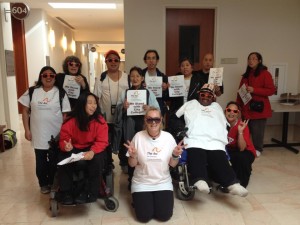
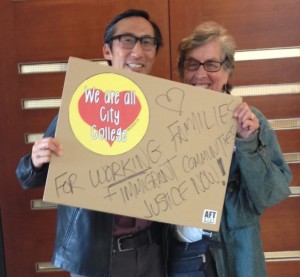
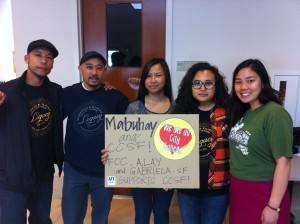
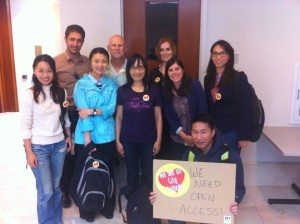
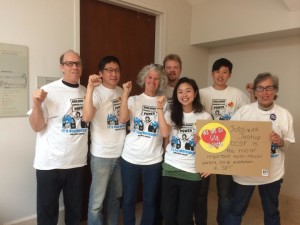
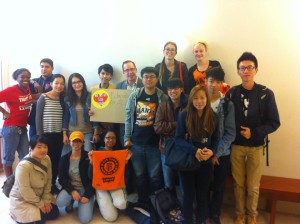

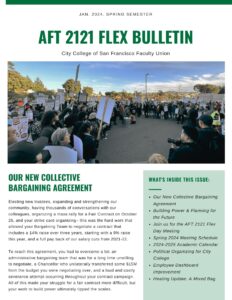
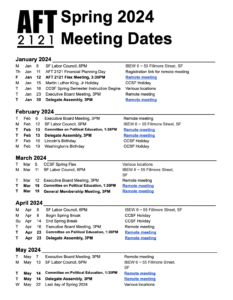
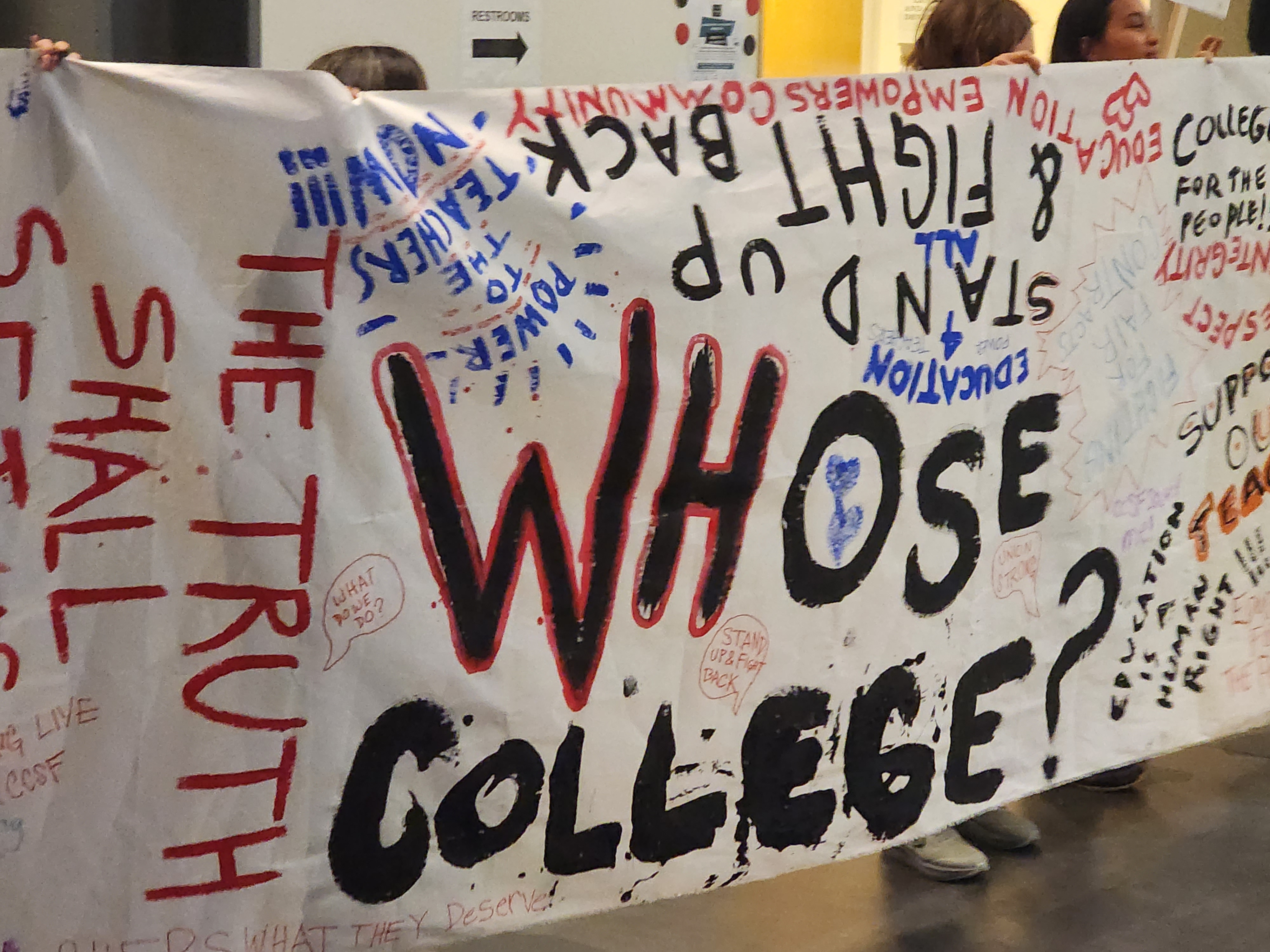
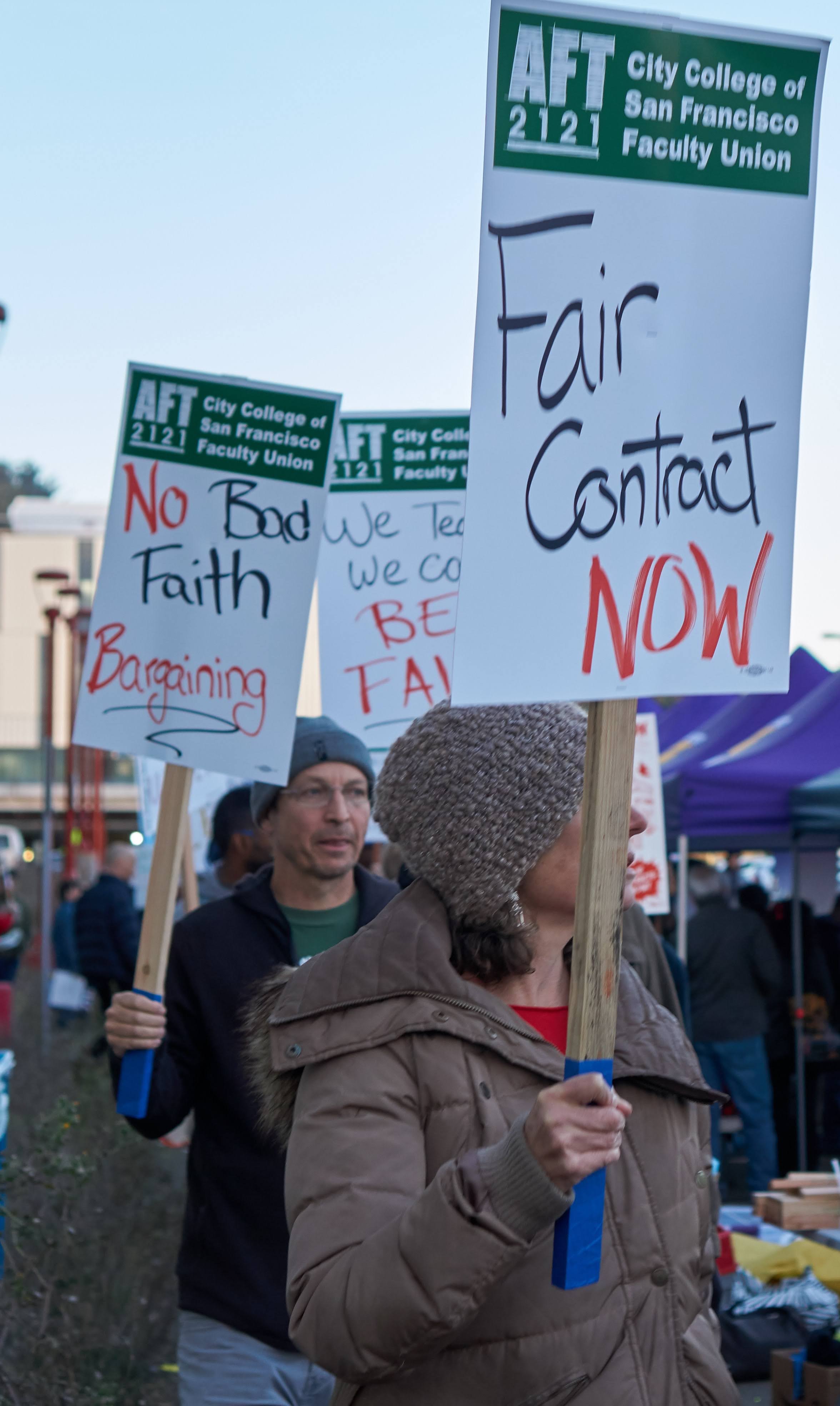
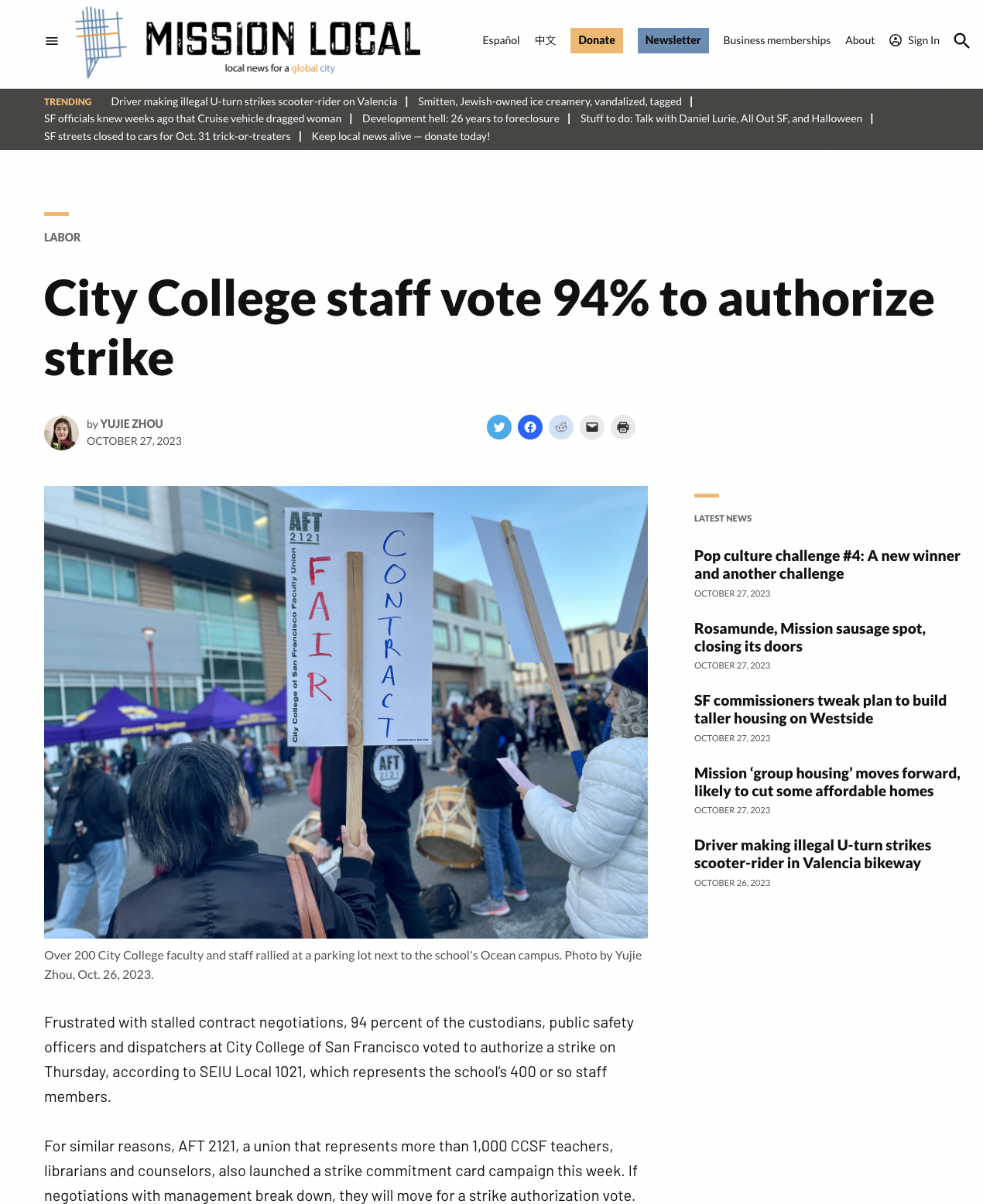
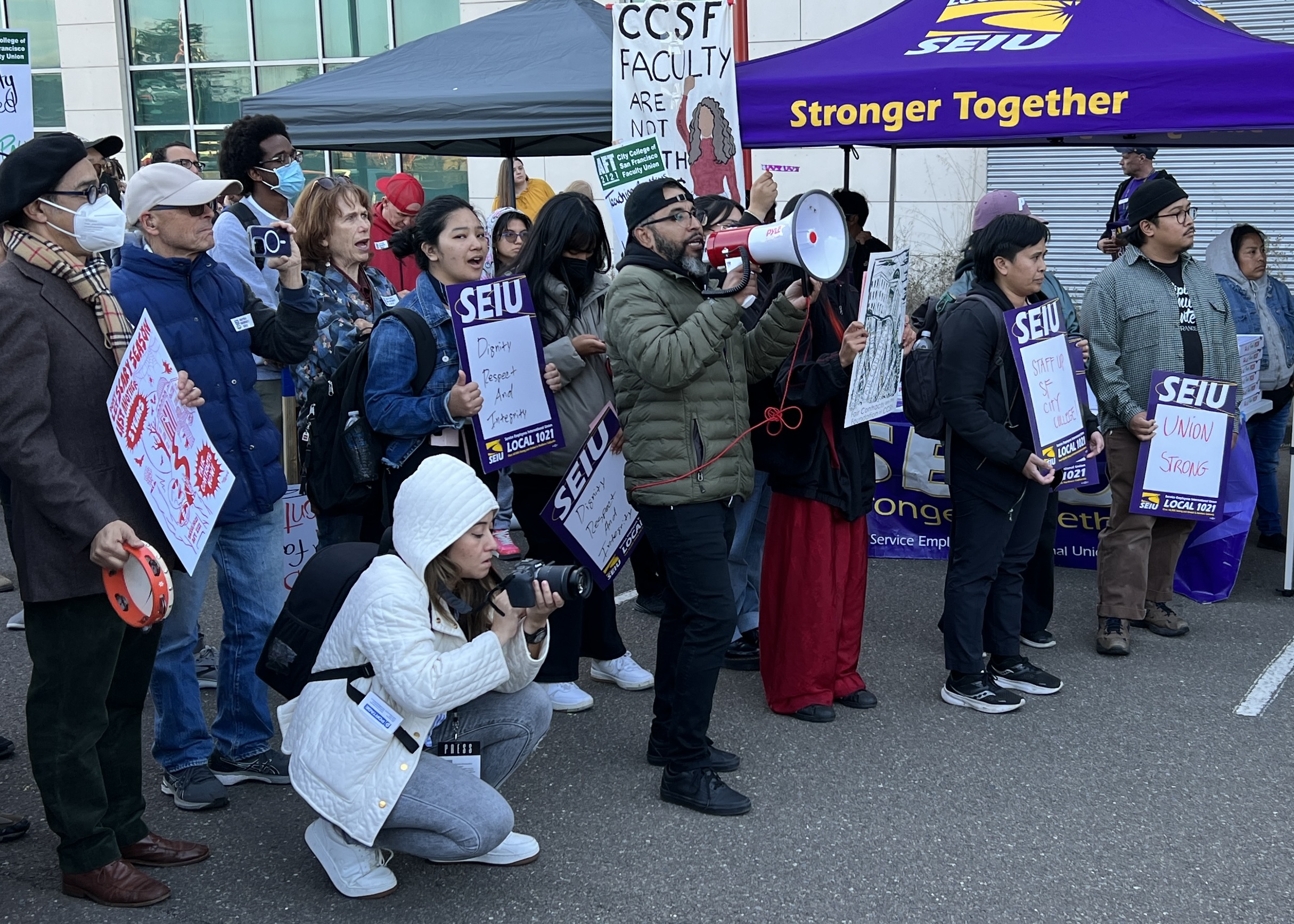
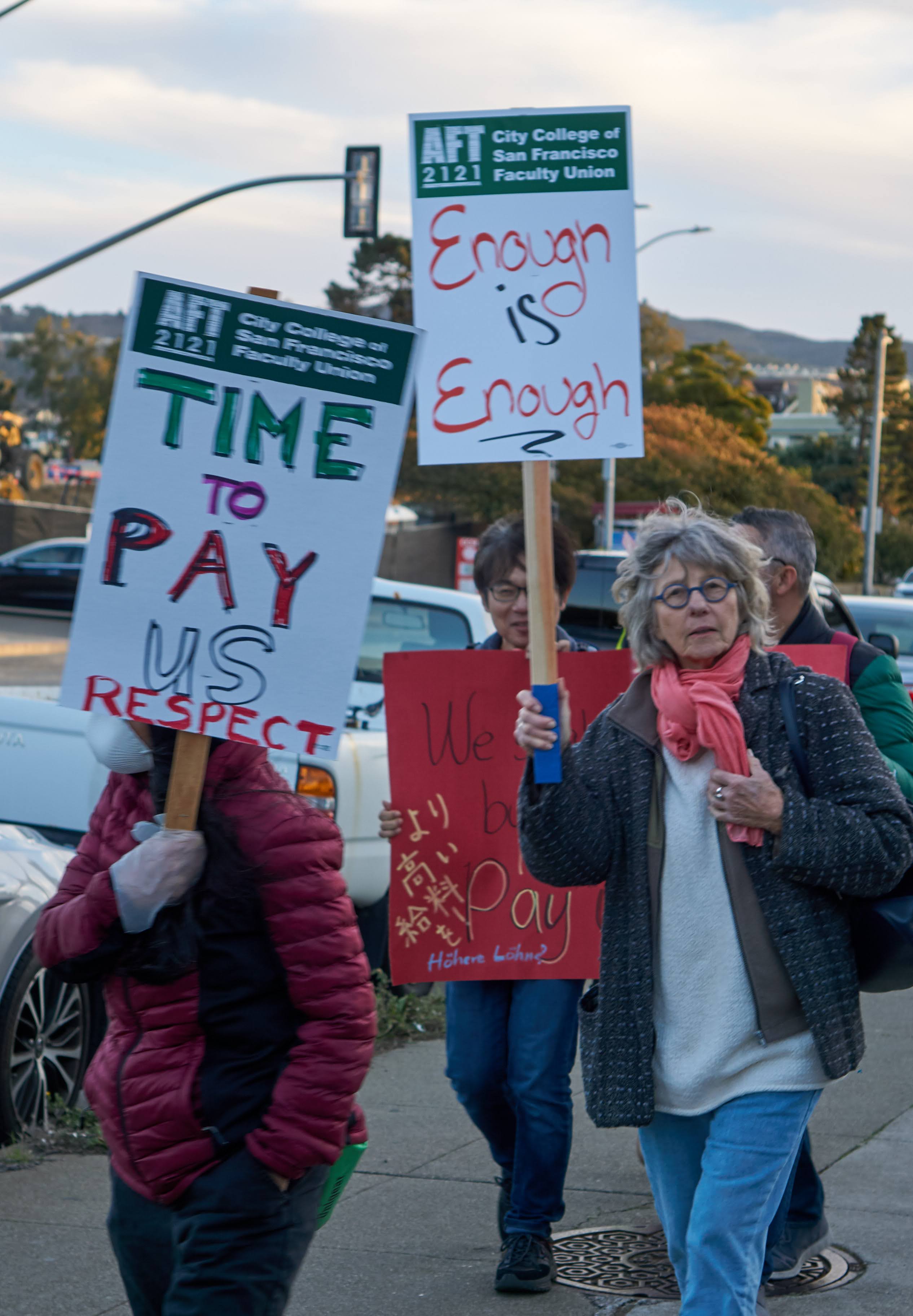
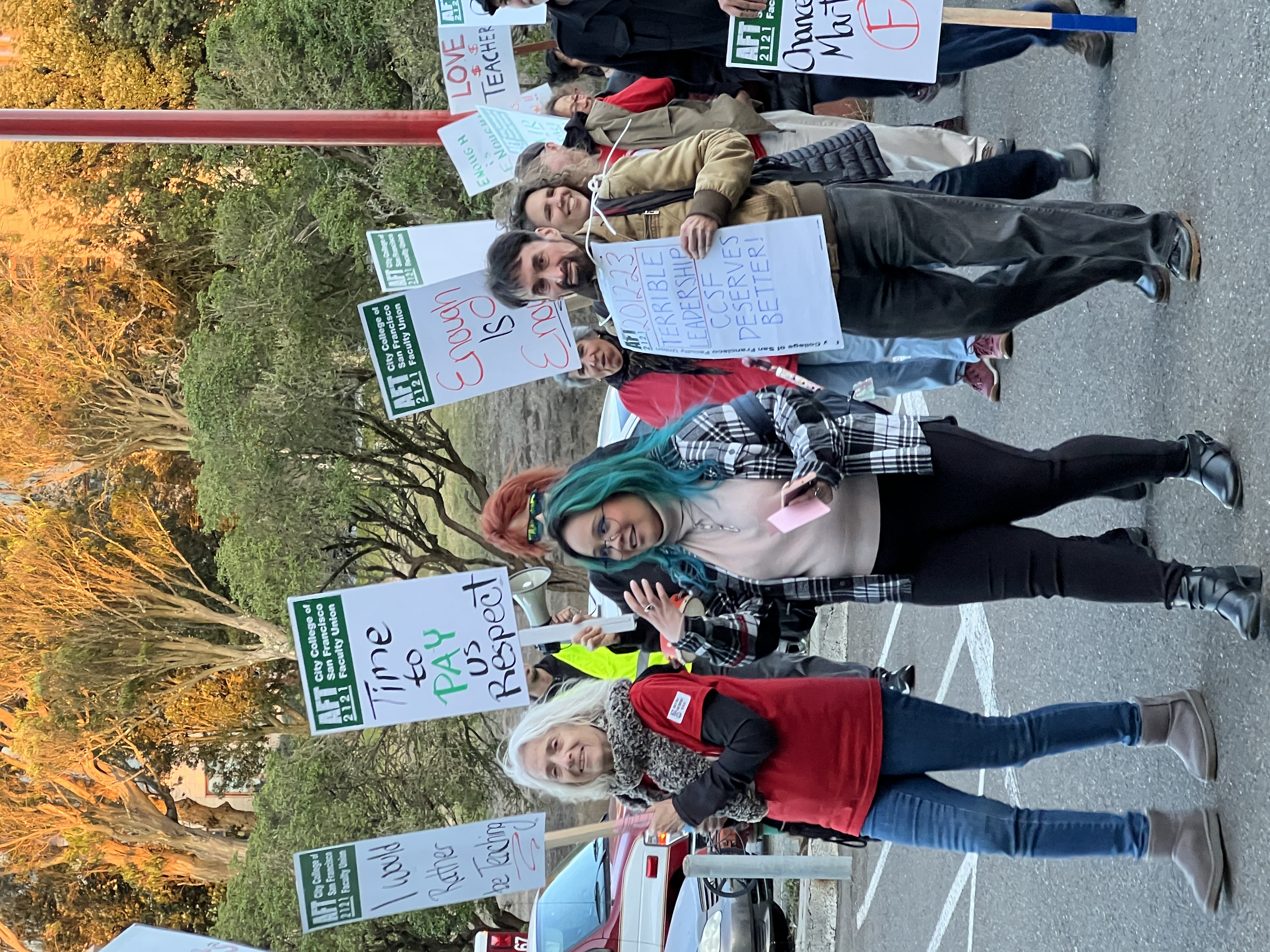
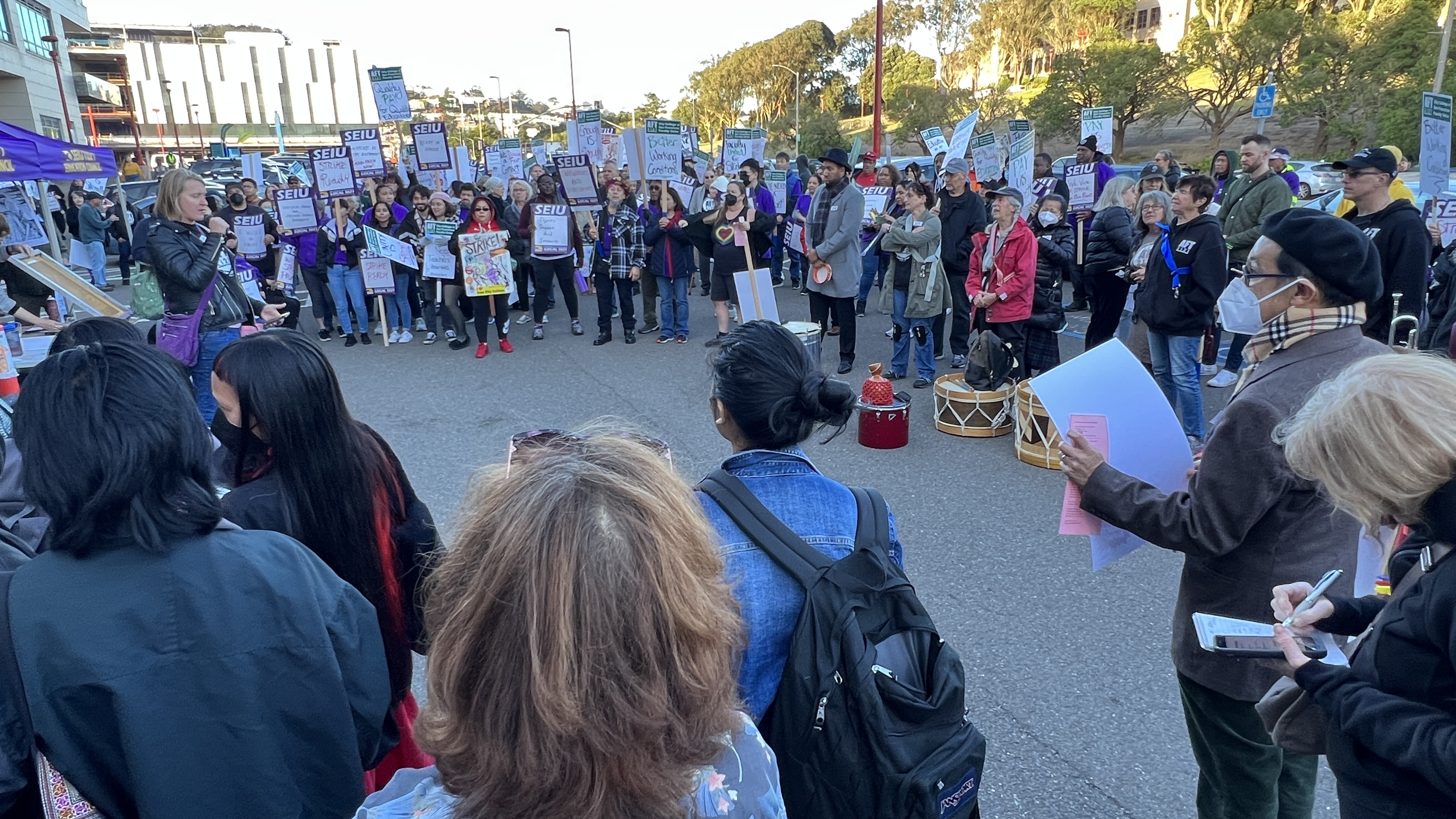
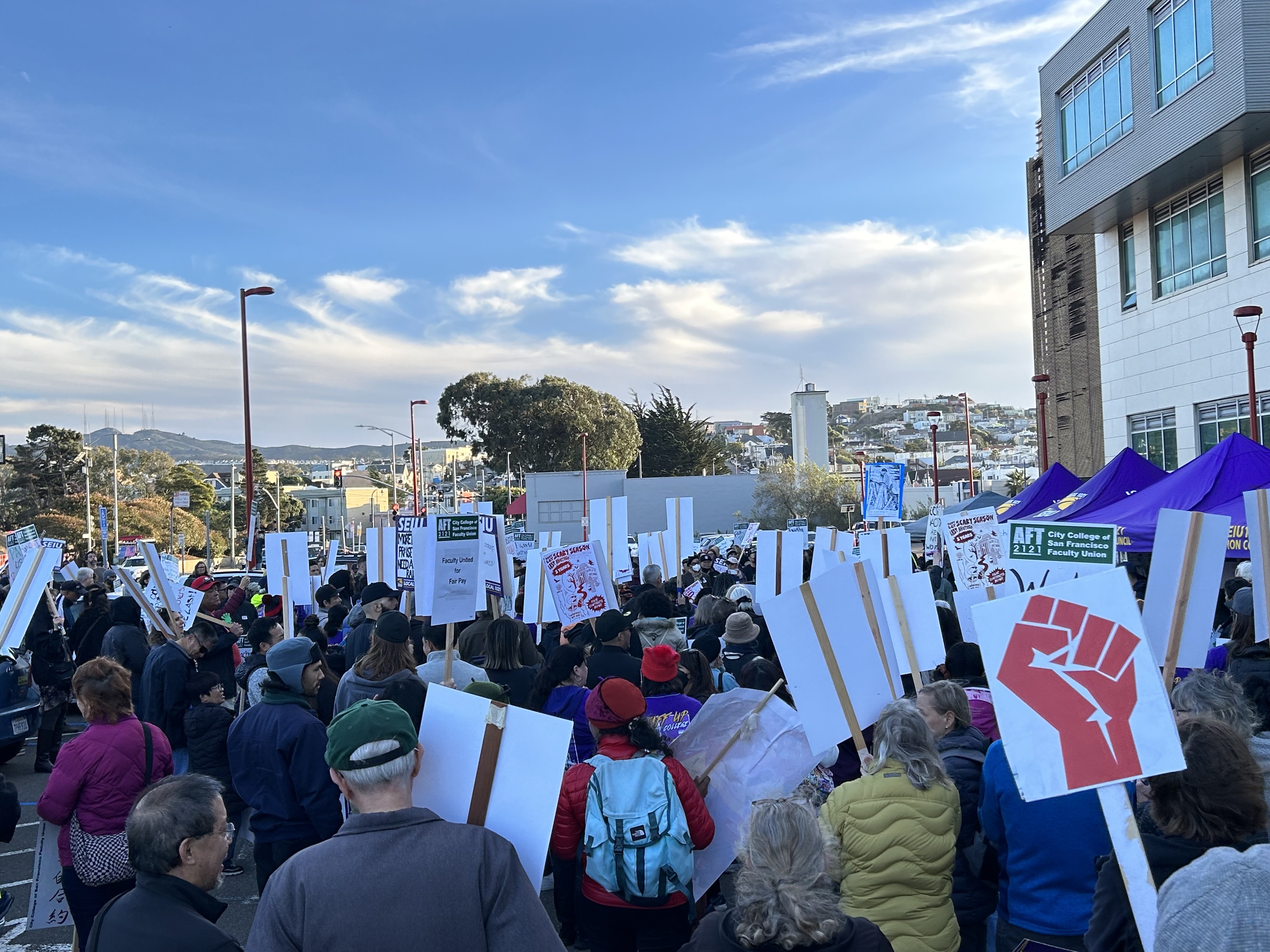
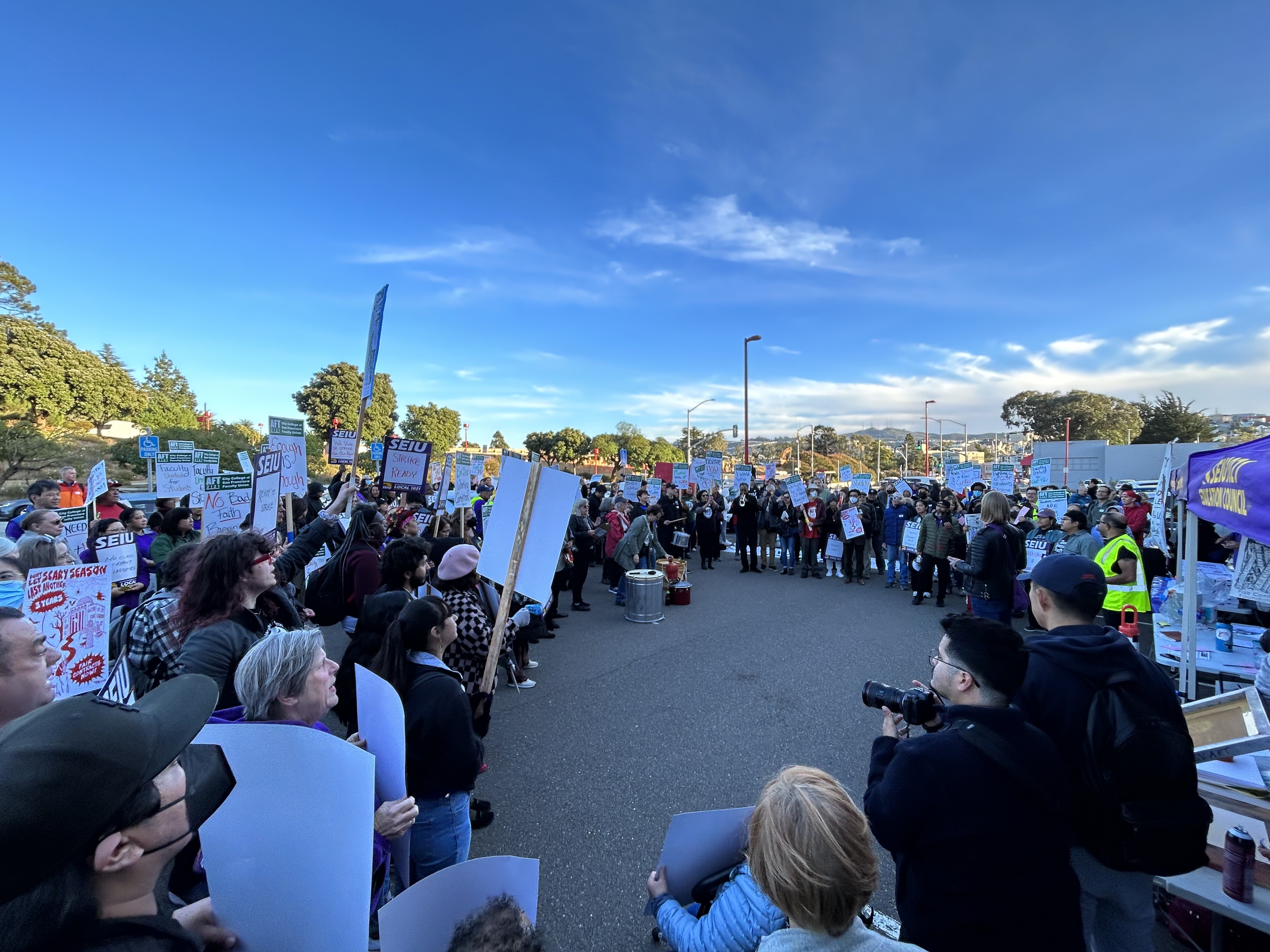
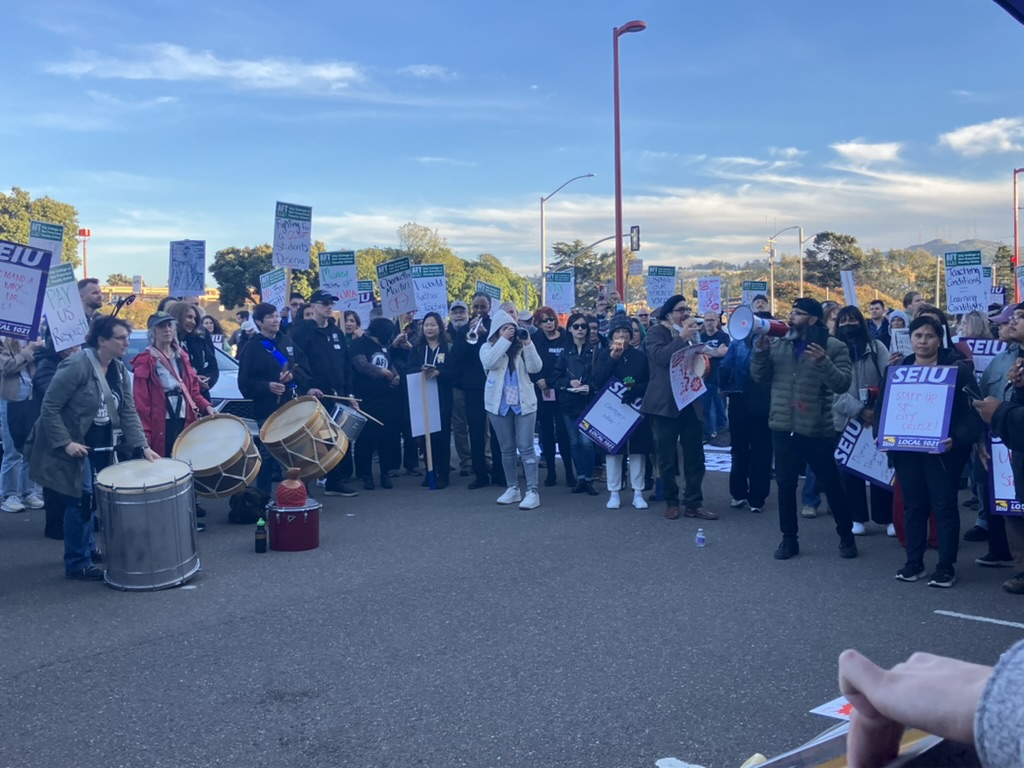
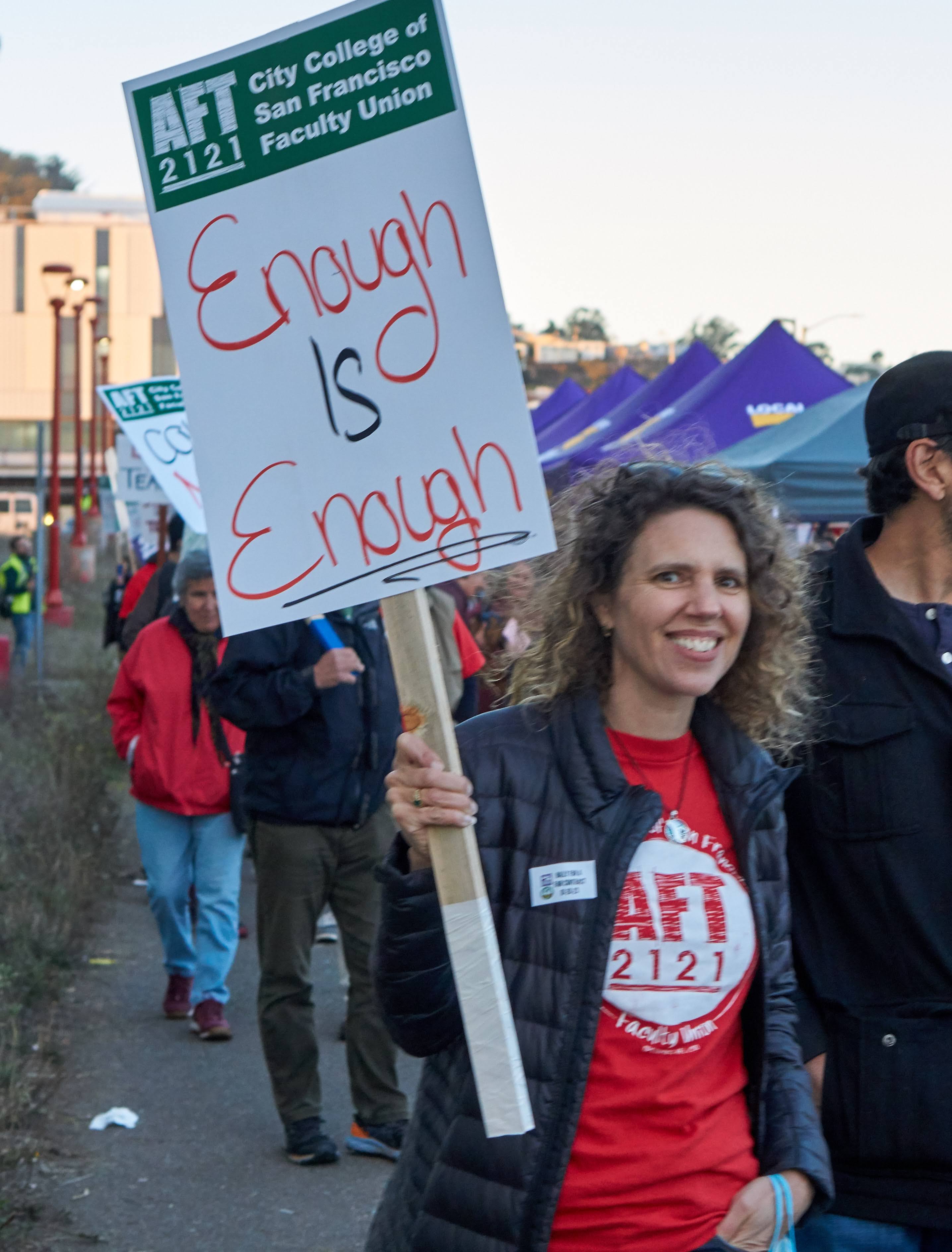

Follow Us!